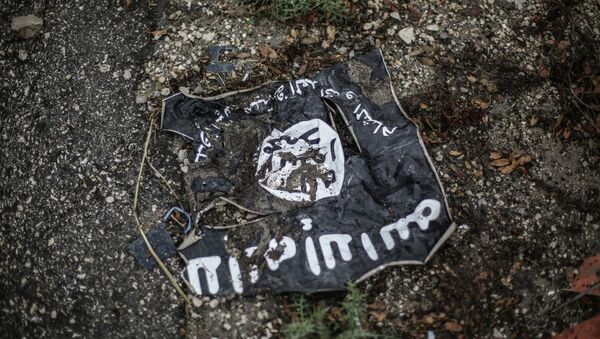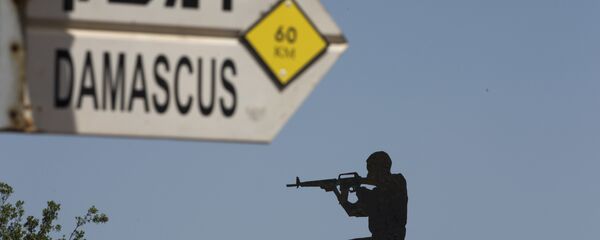Warren Christopher Clark, an American teacher who joined Daesh* via Turkey in the spring of 2015 said that witnessing people being beheaded didn’t strike a raw nerve in him since according to him, “they like to execute people in the US too,” at least in Texas, where he lived before travelling to Syria.
The 34 year-old Clark told NBC News in an interview conducted in a prison in northern Syria, where he was placed after being captured by Kurds, that he saw “some people being executed publicly, some crucifixions”.
“That’s just normal life here,” Clark noted. He confirmed he had seen respective videos, adding that he “sees no difference” in beheadings in Syria and executions in his native state of Texas. “They might do it off camera, but it’s the same”, he asserted.
Having graduated from Houston University, he worked for some time as a substitute teacher in the nearby city of Sugar Land, before converting to Islam and making up his mind to travel to Syria out of curiosity, as he put it, to “see exactly what the group was about, and what they were doing.” He said he never fought for Daesh, who detained him several times, but was later let go for refusing to use arms.
He admitted offering to teach English in the area, which goes in line with last year’s NBC report on Clark’s CV with a cover letter, found at a house in Iraq. In the document, later studied by the Programme on Extremism at George Washington University, the Texan under the alias Abu Muhammad al-Ameriki expressed willingness to work as an English teacher at Mosul University and provided his formal credentials to be accepted for the position.
Despite never being on the frontline, he couldn’t escape the war, perpetually having to hide from airstrikes and bombings, and mostly using a mosque as a shelter. When asked how he had sustained injuries (he walked using crutches at the time of the interview,) he insisted he had been wounded “in a personal fight”.
Clark was detained around the time a group of other international Daesh fighters were taken into Kurdish custody, during the campaign to liberate the last Daesh strongholds in northern Syria, the US-backed Syrian Democratic Forces said in a statement.
Last year, the US Programme on Extremism found that apart from thousands of Europeans, as many as 64 Americans had travelled to Iraq and Syria to fight alongside Daesh since 2011.
READ MORE: 'Get Out Fast': Netanyahu Warns Iran, Vows to Continue Air Raids in Syria
The US-led coalition of more than 70 countries is conducting military operations against Daesh in Syria and Iraq. Meanwhile, the coalition's moves in Syria have not been authorised by the government of President Bashar al-Assad nor by the UN Security Council, however, both are also focused on countering terrorism.
In a very recent development, US President Donald Trump announced an intention to pull American forces out of Syria, thereby prompting Turkish President Recep Tayyip Erdogan to postpone an earlier floated military campaign against Syrian Kurds. Ankara views the Kurdish People's Protection Units (YPG) as an affiliate of the PKK, considered by the Turks to be a terrorist group behind the 2016 failed coup attempt.
On January Erdogan, speaking to the country's parliament, said that Trump had reassured him that US troops will be withdrawing from Syria. He also added that Turkey will create a 32-kilometre safe zone, earlier proposed by the US, with the possibility of further extending it.
*Daesh (ISIL/ISIS/Islamic State), a terrorist group banned in Russia.






